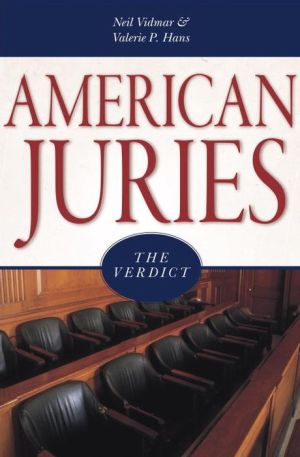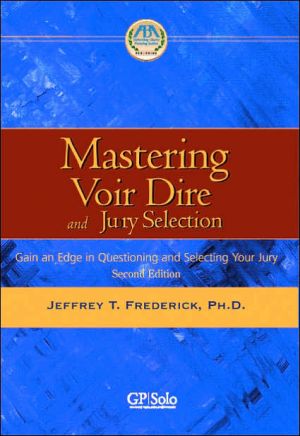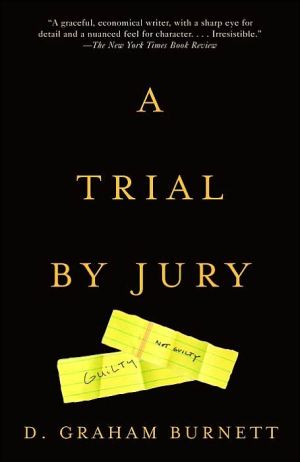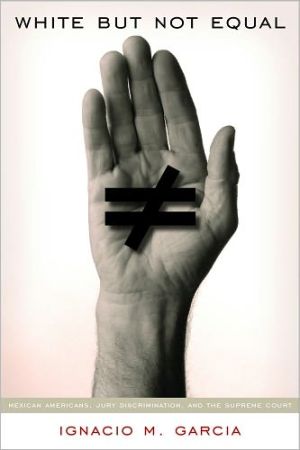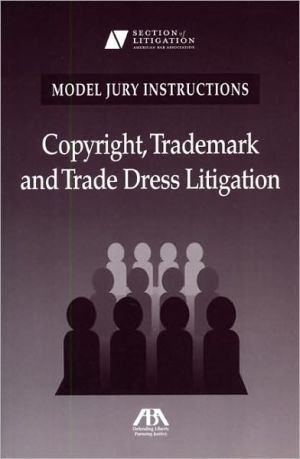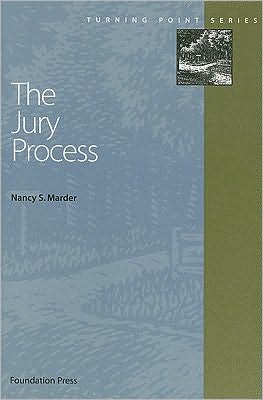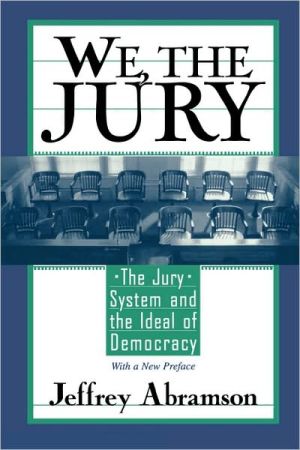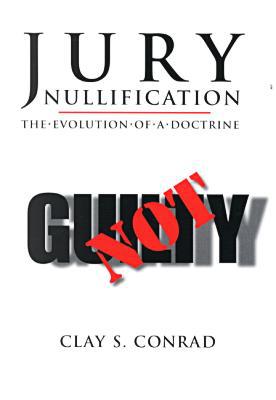American Juries: The Verdict
Although the right to trial by jury is enshrined in the U.S. Constitution, in recent years both criminal and civil juries have been criticized as incompetent, biased, and irresponsible. For example, the O.J. Simpson criminal jury’s verdict produced a racial divide in opinions about that trial. And many Americans still hold strong views about the jury that awarded millions of dollars to a woman who spilled a cup of McDonald's coffee on herself. It’s said that there are "judicial hellholes"...
Search in google:
Although the right to trial by jury is enshrined in the U.S. Constitution, in recent years both criminal and civil juries have been criticized as incompetent, biased, and irresponsible. For example, the O.J. Simpson criminal jury's verdict produced a racial divide in opinions about that trial. And many Americans still hold strong views about the jury that awarded millions of dollars to a woman who spilled a cup of McDonald's coffee on herself. It's said that there are "judicial hellholes" where local juries provide "jackpot justice" in medical malpractice and product liability cases with corporate defendants. Are these claims valid? This monumental and comprehensive volume reviews over fifty years of empirical research on civil and criminal juries and returns a verdict that strongly supports the jury system. Rather than relying on anecdotes, Vidmar and Hans--renowned scholars of the jury system--place the jury system in its historical and contemporary context, giving the stories behind important trials while providing fact-based answers to critical questions. How do juries make decisions and how do their verdicts compare to those of trial judges and technical experts? What roles do jury consultants play in influencing trial outcomes? Can juries understand complex expert testimony? Under which circumstances do capital juries decide to sentence a defendant to die? Are juries biased against doctors and big business? Should juries be allowed to give punitive damages? How do juries respond to the insanity defense? Do jurors ignore the law? Finally, the authors consider various suggestions for improving the way that juries are asked to carry out their duties. After brieflycomparing the American jury to its counterparts in other nations, they conclude that our jury system, despite occasional problems, is, on balance, fair and democratic, and should remain an indispensable component of the judicial process for the foreseeable future.
Chapter 1. The English Origins of the Modern Jury: From Trial by Ordeal to the Decline of the "Little Parliament"Chapter 2. Criminal and Civil Juries in America from Colonial Times to the Present Day: Evolution, a Heroic Role, and ControversyChapter 3. A Jury of Peers: Democratic GoalsChapter 4. Jury Selection: Juror Bias, Juror Challenges, and Trial ConsultantsChapter 5. Problem Cases: Pretrial PublicityChapter 6. The Tasks of the Jury: Evidence Evaluation and Jury Decision-Making ProcessesChapter 7. Judging the Jury: Evaluating Jurors' Comprehension of Evidence and LawChapter 8. Trials in a Scientific Age: Juries Judging ExpertsChapter 9. Judging Criminal Responsibility: Erroneous Convictions, the CSI Effect, and the Victim's RoleChapter 10. Deciding Insanity: Mad or Bad?Chapter 11. Jury Nullification: The War with the LawChapter 12. Death Is Different: Juries and Capital PunishmentChapter 13. Civil Liability: Plaintiff vs. Defendant in the Eyes of the JuryChapter 14. Deciding Compensatory Damages: Million-Dollar QuestionsChapter 15. Punitive Damages: Coffee Spills and Marlboro CigarettesChapter 16. Juries and Medical Malpractice: Anti-doctor, Incompetent, and Irresponsible?Chapter 17. Concluding: The Verdict on JuriesEndnotes
\ From the Publisher"Hundreds of books have been written on juries…but the strength of this book is its topic-by-topic presentation of research studies. Well suited to ambitious undergraduates and scholars, it is essential for law libraries and academic libraries with strong law, criminal justice, public policy, and social sciences collections." —Library Journal\ "This is a well-researched, illuminating body of work that reveals the inner workings of our modern judicial system with clarity and rare understanding…anyone with an interest in juries and American law will enjoy this empirical look past cases and anecdotal evidence." —Monsters and Critics.com\ "A highly readable account of the history of this fascinating, unique, and controversial institution—and more important, a sophisticated distillation of the many empirical studies that reveal its true nature and behavior. Anyone who wants to engage seriously in the debates over the jury's social functions, legitimacy, and actual performance must read this book." —Peter H. Schuck, Simeon E. Baldwin Professor, Yale Law School\ \ \
